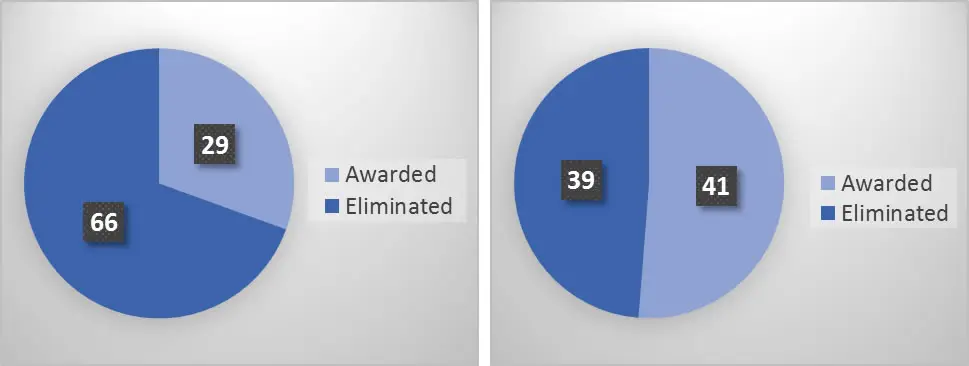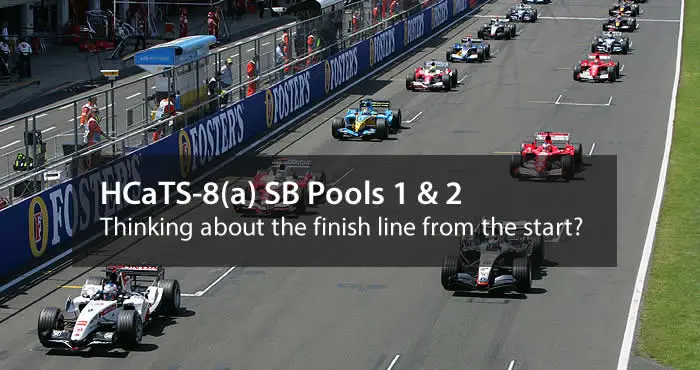HCaTS 8(a) GWAC is released, and GSA has put aside $5.75 billion ($3.45 billion for Pool 1 and $2.3 billion for Pool 2) just for 8(a) companies on this GWAC. There will be 40 awards (20 per Pool) for this approximately 6-year contract. The scope covers:
- Customized Training and Development Services
- Customized Human Capital Strategy Services
- Customized Organizational Performance Improvement
Thus, all eligible 8(a) companies should try their best to win a seat on this lucrative contract. But how should you maximize your chances to win.
Before giving my recommendations as to how to win on the HCaTS GWAC, I will give a short intro on the type of bidding. HCaTS, like other recent GSA GWACs, is based on a self-scoring evaluation system. That means that there is little “proposal writing” and a huge amount of “document management.” They have provided the guidelines in the RFP as to how you are supposed to score yourself. You score yourself and fill in a form for that scoring and provided the needed documentation to prove that you scored yourself correctly. Then the Government sorts the received proposals based on the scores and verifies the proof documents and awards to the top 20 for each pool (overall 40 awards). This might sound simple but is extremely complex in reality and many proposal managers have a hard time understanding the requirements and how to manage this type of proposal. See my last note below on this.
I have supervised, prepared, and reviewed approximately 80 self-scoring proposals on HCaTS, OASIS, Alliant, and VETS, as well as some NAVAIR jobs. Based on that experience, here is my 2 cents on how to maximize your score and ensure a win:
- You need to have somebody who knows the ins and outs of your contracts, and you need him involved throughout the proposal preparation process. 8(a) companies are usually lean and mean, so the CEO or a layer below her/him knows about all the contracts performed. Get your contracts’ guru involved.
- Forget about subcontracting or being a subcontractor. HCaTS doesn’t accept it. Either you, as the Prime company, have the minimum qualifications, or you don’t.
- I suggest – and that is how we do it for our clients – to do the proposal development in 3 stages:
- Conduct a thorough Go/No-Go based on having the minimum requirements (we do this free for our clients)
- Assess your contracts and come up with a score. If your score is not high enough, do not proceed to prepare the actual proposal. It would be a waste of your time (or if you are outsourcing your proposal writing, it would be a waste of your money).
- Prepare the needed documentation (proposal) if you come up with a good score on step b.
- Step b is the most crucial once you are sure you have the minimum requirements. There are two pitfalls. One is not to understand the numerous and varied requirements correctly and then pick the wrong projects or overstretch your scoring. The second is underscoring yourself, again for the same reason of not understanding the requirements correctly.
- If you have more than 6 contracts (federal and commercial), it is really important to score them individually and then decide which 6 will give you the highest score. This is crucial. Many companies just take their largest (dollar amount-wise) projects and use them. This is wrong. In many instances, smaller contracts with other high-scoring features can give you higher scores overall. We have created a special scoring matrix for our clients, and you should do the same if you are going to do it in-house. Each row should be a contract, and you should calculate the maximum score that that project will bring you based on the scoring system spelled out in the RFP. I can’t emphasize this more because it truly helps you maximize your score to the fullest.
- If you have prepared a self-scoring proposal and won, by all means, do it yourself. It will be much easier than communicating the information to an outside company. However, if you have not won on this type of self-scoring proposal before, then I strongly recommend that you outsource. This is not a sales pitch. It is based on facts:
Look at the graphs below for the previous bidding of HCaTS. Nearly 73% of small businesses and nearly 49% of large businesses were disqualified because their proposals were not compliant:

In conclusion, the GSA HCaTS 8(a) GWAC is a must-win for all 8(a) companies that are in the training and human resources/staffing business. But you can’t win it without focusing and concentrating on it. Assign the needed resources for it, use proper procedures and create a COMPLIANT proposal to ensure you have a seat on this major GWAC.

